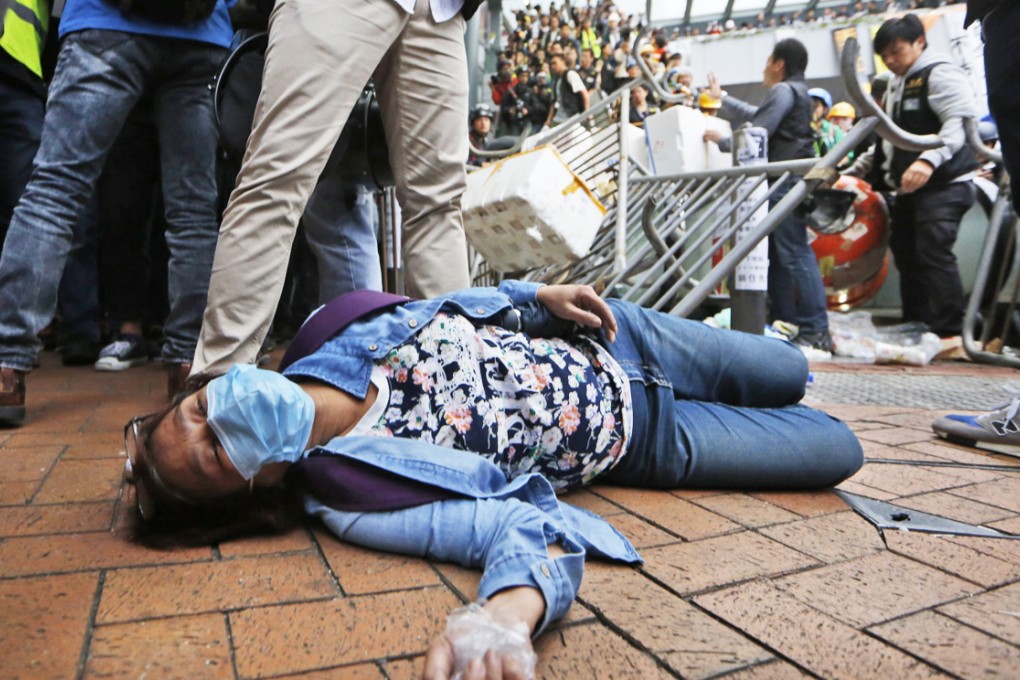Opinion | The government must take responsibility for ending Occupy protests
Frank Ching says being derided for lacking legitimacy does not give the government an excuse to sit on its hands about the protests

Recent, highly visible examples of police abuse of power are totally unacceptable and potentially dangerous. Without close monitoring by government ministers, there is a danger that the police may become a law unto itself.
Granted, officers have been under great strain ever since the clearance operation in Mong Kok, and they have been battling protesters almost every night into the small hours. This, of course, also makes it clear that while the slogan "Occupy Central" is still used, there is little attempt to ensure that it is done "with love and peace", as promised.
The three original organisers said that the idea was civil disobedience, with participants not resisting arrest but ready to accept the legal consequences of their actions. Now, those carrying out Occupy Central are dressed and armed for battle with the police. Yet, the founders of Occupy Central have not repudiated them. The leaders have turned into the led.
On the government side, there is a similar unwillingness to assume responsibility. The police, we are told, are professionals capable of making their own decisions. In fact, the police should have been brought in to restore order long ago but the government sat on its hands, refusing to govern. In theory, the police entered the scene last week through the circuitous route of acting as assistants to bailiffs enforcing injunctions sought by private parties.
The government, it seems, has relinquished its role of governing and turned it over to the private sector, to the judiciary, to court bailiffs and to their police assistants. Nowhere is the government seen to be exercising leadership. It is not communicating with protesters. It is not mediating with the central government regarding the desires of Hong Kong people. It is not making plans. Steve Vickers, former head of the police criminal intelligence unit and now a security risk consultant, says the government's "quasi-judicial-police approach" is "damaging to Hong Kong's future" and to the judiciary.

